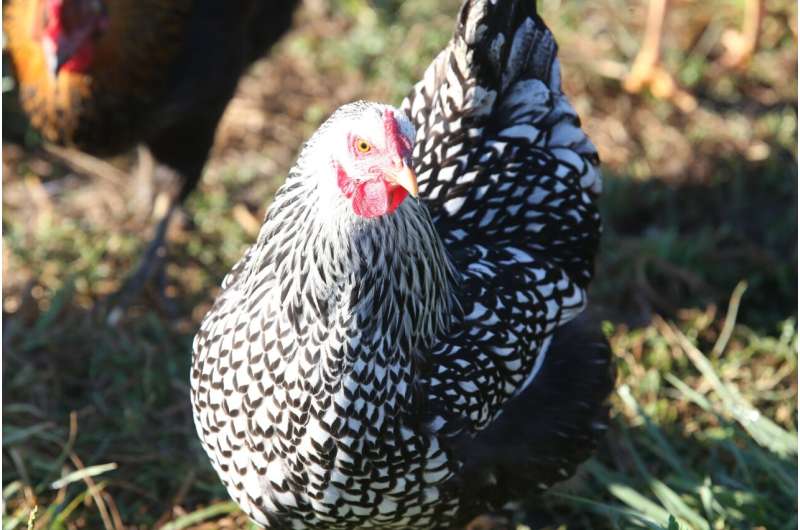This article has been reviewed according to Science X's editorial process and policies. Editors have highlighted the following attributes while ensuring the content's credibility:
fact-checked
trusted source
proofread
Food labels offer consumer choices but also confusion about animal welfare, says expert

Animal-based food products often come packaged in a wide array of information labels, including organic, natural, grass-fed, humanely raised and pasture-raised.
"There's some confusion about food labels related to animal welfare," said Purdue University's Marisa Erasmus, associate professor of animal sciences and a specialist in animal behavior and welfare. "It's typically up to the consumer to do their homework and figure out what these different claims mean. Labels do provide consumers with a choice because, in theory, you can choose products that align with your personal and social values."
Erasmus' comments follow the U.S. Department of Agriculture's newly launched effort to strengthen the validity of animal-raising claims. Erasmus and her colleagues will be watching to see what additional documentation animal food producers will need to provide regarding food label claims.
In general, she noted, producers need to submit certain claims about their food products to the USDA's Food Safety and Inspection Service for approval. The FSIS regulates certain food labels and claims on meat and poultry products. Some claims require that producers submit documentation before approval is granted.
"One point of confusion is which claims are associated with animal welfare certification organizations that use third-party verification," Erasmus said. "Producers that work with one of these organizations can put the latter's seal on their products to indicate that the animals were raised according to certain standards. Typically, those standards are intended to offer higher animal welfare than what you would see with a conventional product. But a lot of consumers don't necessarily know what these different seals mean. And the absence of a label claim does not mean that food animals were raised inhumanely."
Other labels have more to do with how people perceive the health benefits of a product and do not relate as much to the animal's welfare.
"We definitely want to make sustainable, healthy choices," Erasmus said. "But just because an animal product has an organic label on it doesn't always mean that animal had a better life than an animal that wasn't raised organically."
The USDA regulates organics through the National Organic Program, which offers a label distinct from those provided by other sources.
The idea of "no antibiotics added" is another claim that can cause confusion.
"This label is confusing because antibiotics are occasionally used to treat live animals or prevent illness, but antibiotics are not added to meat products."
If animals are given antibiotics at some point in their lives, then there is a mandatory withdrawal period. That period allows the antibiotics to pass from the animal's system before any products are created from that animal.
Erasmus and her colleagues work closely with producers in Indiana and across the U.S. to support humane animal production practices and conduct research providing guidelines for animal welfare and management. The Poultry Extension Collaborative provides more details about animal food product labeling in the July 2023 issue of Poultry Press.
Provided by Purdue University





















